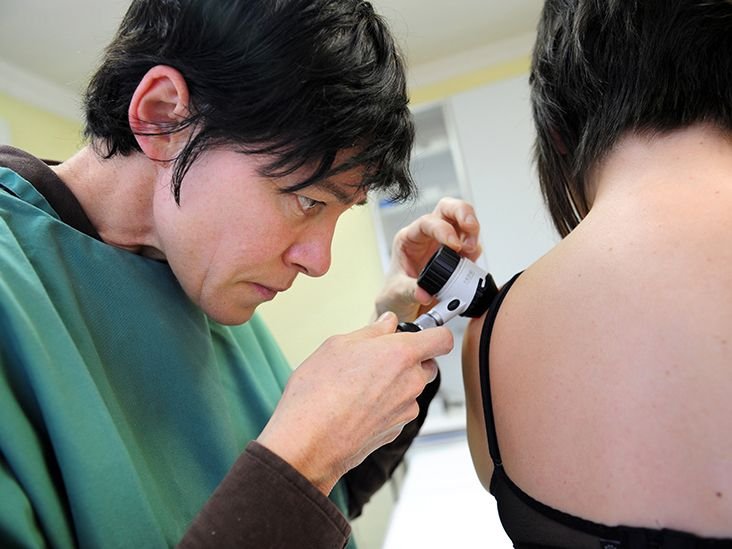Understanding Dermatology: Your Guide to Skin, Hair, and Nail Health
A dermatologist is a specialized medical professional focused on diagnosing and treating conditions related to the skin, hair, nails, and mucous membranes. This area of medicine spans a wide array of medical and cosmetic issues, from acne, which affects many, to life-threatening conditions such as skin cancer.
The Importance of Dermatology
The skin, being the body’s largest organ, plays a crucial role in overall health. It serves as a barrier against pathogens and can reveal underlying health complications through its appearance. According to the Centers for Disease Control and Prevention (CDC), there were approximately 39 million visits to dermatologists in the U.S. during 2010 alone.
Common Reasons for Dermatology Visits
Individuals may seek dermatological care for various reasons, including:
- Skin conditions like acne, eczema, and dermatitis
- Cosmetic enhancements to improve skin appearance
- Diagnosis and treatment of skin cancers
- Hair loss and related issues
Qualifications and Certification
When seeking a dermatologist, it’s vital to ensure that they hold the appropriate qualifications. In the United States, a certified dermatologist should be:
- Graduated from medical school as an MD (Medical Doctor) or DO (Doctor of Osteopathic Medicine)
- Completed a hands-on residency program
- Certified by bodies like the American Board of Dermatology or the American Osteopathic Board of Dermatology
Many dermatologists hold the status of Fellow of the American Academy of Dermatology (FAAD), indicating not only their competence but also their ongoing commitment to professional development.
Image Credit: FRED TANNEAU/AFP via Getty Images.
Common Skin Disorders Treated by Dermatologists
Dermatologists encounter over 3,000 skin conditions. Some of the most frequently addressed issues include:
- Acne: Commonly caused by hormonal changes, leading to various types of pimples and potential scarring.
- Eczema and Dermatitis: These inflammatory conditions result in itchy, swollen skin.
- Warts: Contagious skin growths caused by viral infections that can be treated in a clinical setting.
- Nail Problems: Ingrown nails, fungal infections, and various other nail-related ailments.
- Vitiligo: A skin condition where patches lose pigment, leading to lighter spots.
- Psoriasis: A chronic autoimmune condition that accelerates skin cell growth.
- Cosmetic Concerns: Issues like wrinkles, pigmentation, and sagging skin.
Treatment Options Available in Dermatology
Dermatologists utilize a comprehensive range of treatments tailored to individual needs. The following are common treatment options:
Medical Procedures
- Chemical Peels: Remove damaged skin layers to rejuvenate the appearance.
- Cosmetic Injections: Like Botox and fillers to temporarily address wrinkles and scarring.
- Cryotherapy: Freezing skin lesions to eradicate affected cells.
- Dermabrasion: Reduces the appearance of scars and fine lines through mechanical exfoliation.
Surgical Procedures
- Excision of Lesions: Removal for diagnostic or cosmetic reasons.
- Mohs Surgery: A meticulous technique to treat skin cancer, ensuring complete removal of cancerous cells.
Advanced Treatments
- PUVA Therapy: Combining a medication with UV light for conditions like psoriasis.
- Laser Treatments: Addressing scars, tattoos, and other skin imperfections through focused light therapy.
When to Consult a Dermatologist
If home remedies fail to improve your skin, hair, or nails, it may be time to consult a dermatologist. Discussing cosmetic improvements? Specialized cosmetic dermatologists are available to help. Always check with your insurance provider beforehand to ensure coverage for relevant treatments.
Conclusion
Dermatology is a vital medical field dedicated to maintaining skin, hair, and nail health. Whether you are experiencing a troublesome skin condition or seeking cosmetic enhancements, a qualified dermatologist can provide effective solutions tailored to your needs. Visit the American Academy of Dermatology to learn more about finding a certified dermatologist in your area.
By understanding the role and qualifications of dermatologists, individuals can take proactive steps toward achieving healthy and radiant skin.


